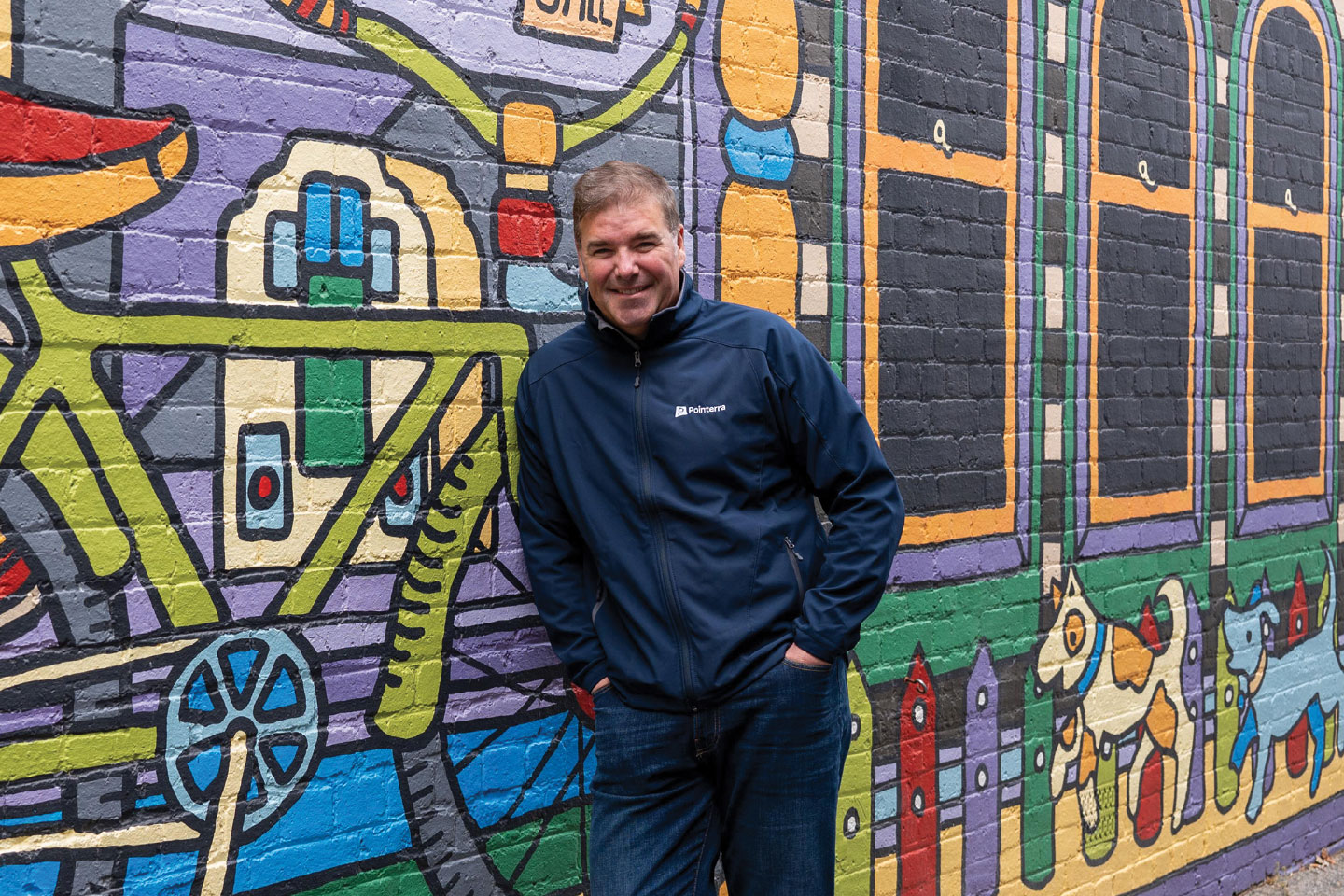Limitless WA: Human capital has been key for Perth-based 3D data business Pointerra taking its products into overseas markets.


Building an internationally competitive data analytics company in one of the world’s most isolated cities would always present staffing challenges.
Click to visit our new Limitless WA innovation, tech and science portal.
But 3D data business Pointerra has pushed through these barriers and reached a market capitalisation of $300 million as it seeks to grow its position offshore.
Because of their huge complexity, 3D datasets traditionally need processing through four or five software packages before they can provide useful insights, requiring powerful processors and many hours of work.
A novel mathematical approach to structuring that 3D data underpins Western Australian tech company Pointerra’s software platform, Pointerra3D, which takes collected data and manages, stores, processes and analyses it.
The datasets are turned into a digital model, which can then be ‘queried’, enabling companies to quickly glean insights about their physical environment, through a web browser.
The pandemic provided an unexpected tailwind, accelerating Pointerra’s growth, co-founder and managing director Ian Olson said.
“When people who manage the physical world were suddenly told to work from home and couldn’t be in front of the assets that normally were ... next to them – an iron ore mine or a rail network or road network or dairy – the ability to access a digital twin of that asset from a browser [became significant],” he said.
From entering the ASX through a $5 million reverse listing in 2016 with 600 investors, to being admitted to the all-ordinaries index in late 2020, Pointerra has grown quickly.
The company boasts 11,000 shareholders in 2021, and $10 million in yearly revenue, driven in large part by US power utilities, which spend big acquiring the 3D data that Pointerra processes.
But scaling quickly is rarely a smooth ride, and Mr Olson said it had been no different for Pointerra.
“Most people, if they’re honest, will tell you the path to success is a bunch of failures, many failures and medium-sized failures and even sometimes catastrophic ones,” he said.
“We’ve made tons of mistakes, and for us as a public company, having to go back, cap in hand, to the market because we’d run out of money and we’d failed – [doing] a really dilutive cap raising at a really poor share price – was probably our biggest fear.
“But the difference between success and an ultimate failure, which is capitulation, is persistence.”
Mr OIson’s philosophy is one of embracing failure when it happens.
“If you’re not making mistakes, I’d argue you’re potentially not pushing hard enough,” he said.

Spatial intelligence
WA has been home to a series of businesses focused on spatial data and surveying.
Aerial mapper Nearmap started in Perth in 1998, and now has a market capitalisation of almost $1 billion.
The ASX-listed business booked nearly $115 million in revenue in the 2021 financial year.
It is now based in Sydney.
Spookfish was created in Perth and acquired by US company Eagleview Technologies in 2018 for $122 million.
Takor Group, which owns the Soar platform of high-resolution earth maps, had planned an IPO earlier this year.
Pointerra is headquartered in Subiaco.
However, WA does not have the same level of programming capability as some bigger jurisdictions.
For Pointerra, finding the staff with both the right skills and attitude presented a challenge.
“We’re at just over 30 people now and success, as you scale from 30 to 50 to 100, is finding people who react in a mature way when things don’t go right,” Mr Olson said.
Rather than relying solely on attracting recruits from interstate and overseas, Pointerra set about investing in young people to create the talent it needed locally.
“Because there’s such a scarcity of quality developer resources here, we’ve gone into the university campuses, into the software engineering and computer science, and robotics, mechatronics courses, at Curtin and UWA in particular,” he said.
“We’ve identified undergrads that are in year one or year two of their degree and, instead of working at Pizza Hut, we’ve got them to come in a day or two a week and learn about our business and make a contribution.”
Mr Olson said the strategy had more success than expected – two graduates incubated at Pointerra in the past three years of their degrees will be joining the team full time in 2022.
Pointerra focused on creating a culture that challenged and invested in its staff, he said.
“It’s not about beanbags and pool tables and the sort of things that people associate with tech companies,” Mr Olson said.
“These people are highly intelligent, they are massively inquisitive, and they get a thrill out of solving problems and, if we can turn that thrill into a product for our customers, then we crack quite a bit of inertia.”
“We put them in the line of fire, let them get involved and give them heaps of responsibility and we back them when they fail, because they will make mistakes.”
Pointerra has built a profile overseas but has also changed the way firms do business in WA.
“It’d be really invisible to most people, but we’ve made a significant difference to all those big iron ore companies that have scaled in the last few years since iron ore has gone on its run,” Mr Olson said.
“A lot of the civil infrastructure and process infrastructure has been built using 3D data captured by surveyors that are customers of Pointerra and then used by engineering firms that are customers to Pointerra.
“We’re embedded into the built environment of Western Australia, both in civil and in mining.”













